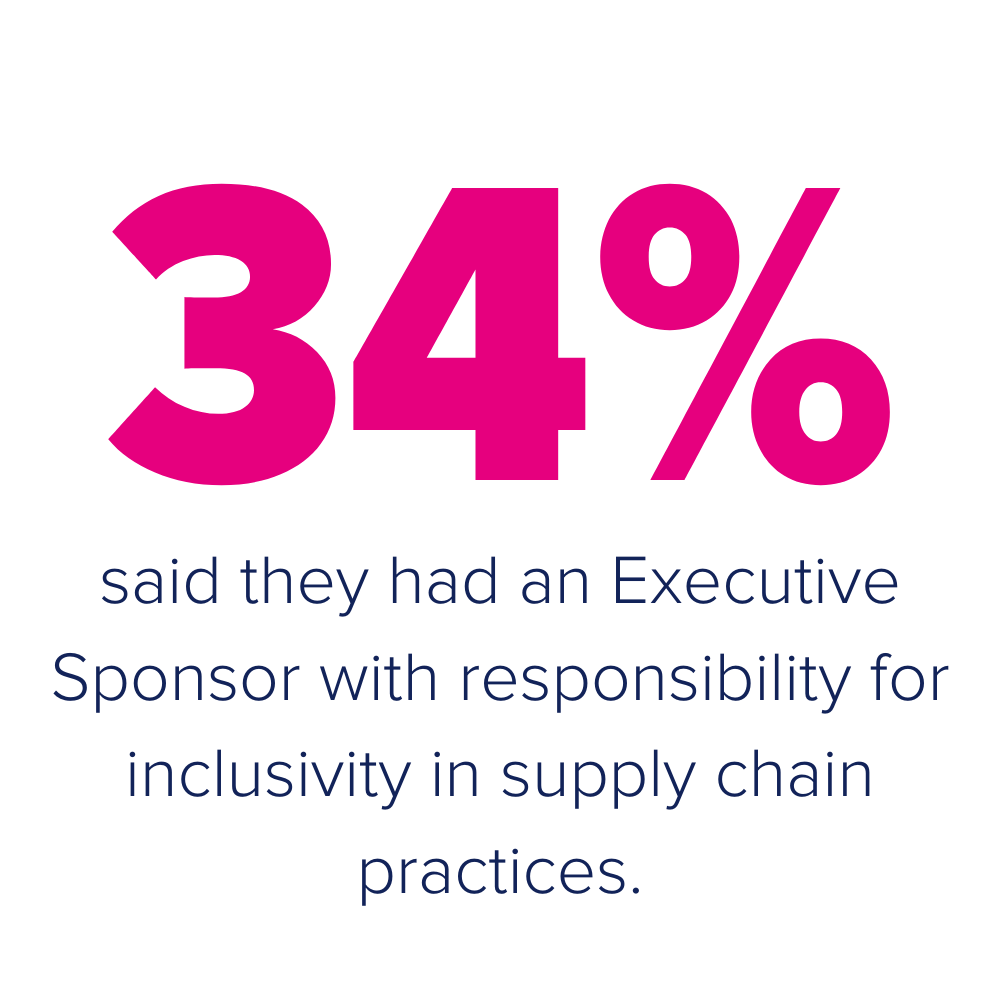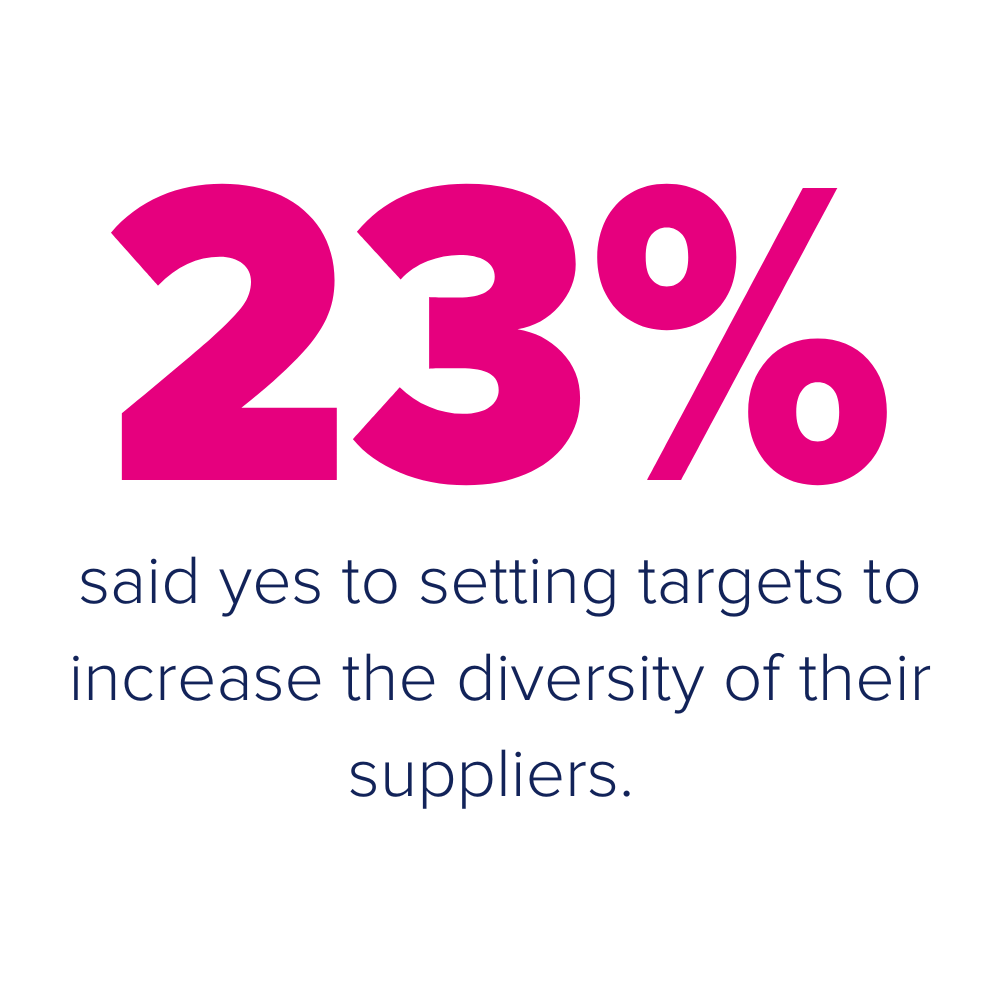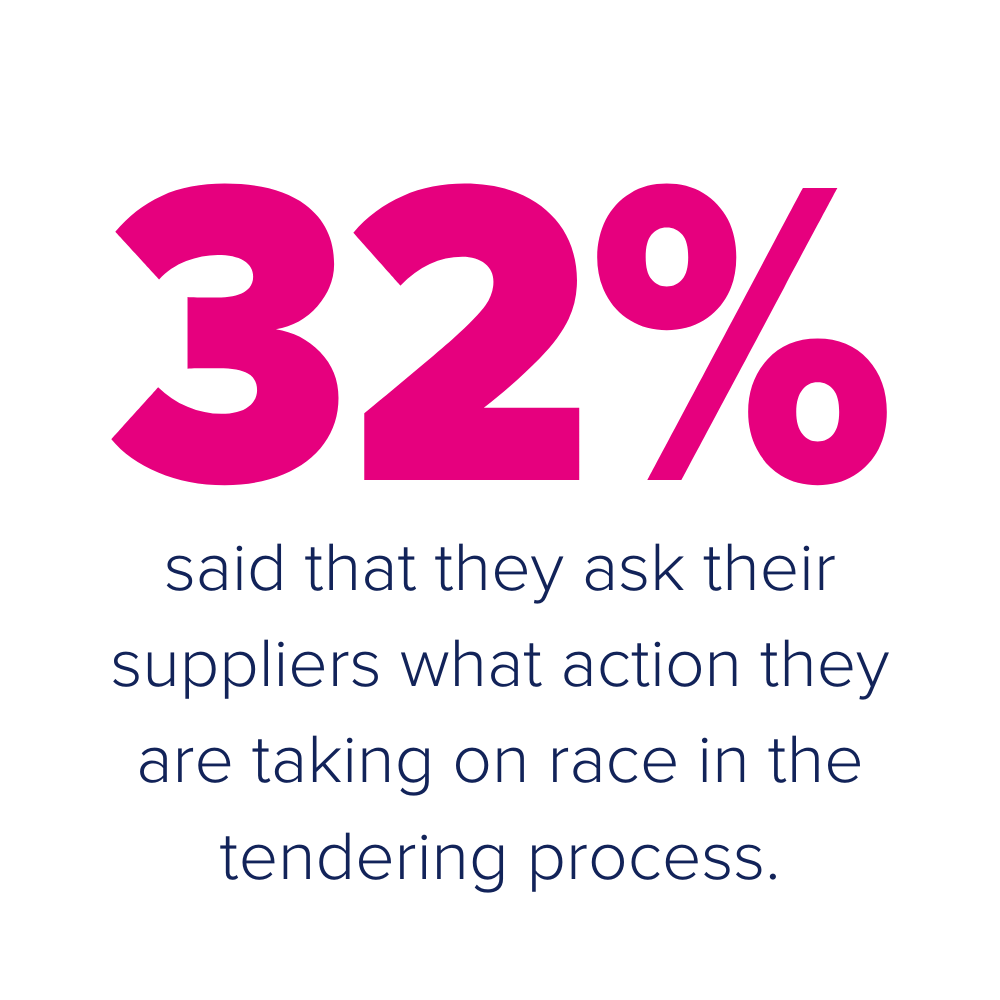Diverse and Inclusive Supply Chains
Diverse and Inclusive Supply Chains
At Business in the Community (BITC), we believe that employers should ensure Black, Asian, Mixed Race and other ethnically diverse owned businesses are part of their supply chain contracts. This is commitment seven of our Race at Work Charter.
Our Race at Work Charter Survey 2023 findings found that out of 238 UK employers:




Benefits of diverse and inclusive supply chains
Diverse and inclusive supply chains stimulate economic growth and job creation in underrepresented communities, as diverse suppliers often operate in these areas. It is also a great way to boost business performance through:
• Increased innovation and creativity, as diverse perspectives and experiences bring fresh ideas to the table.
• Better understanding and connection with customers, tapping into a wider range of cultural and demographic insights.
• Improved reputation, brand image and commitment to responsible business.
Calls for evidence
The ‘Leadership, employees and procurement’ survey is the first of its kind and seeks to explore the dynamics of diversity, fairness and inclusion in procurement practices.
The survey will uncover new and definitive evidence that identifies the levers for change to increase diverse and inclusive supply chains in businesses.
Survey objectives
We aim to provide definitive evidence that will help employers:
• Increase the number of diverse suppliers in the procurement process of large corporate organisations.
• Promote fairness in procurement practices among large corporate organisations and small businesses.
• Foster collaboration and knowledge sharing among diverse suppliers and corporate organisations.
• Examine the disparities by the intersection of ethnicity and social background, gender, religion and belief, LGBTQIA+, neurodiversity, and location.
• Support economic development and job creation in underrepresented communities through procurement opportunities.


The Diverse and Inclusive Supply Chains Insights Report
This report presents the valuable insights from the Leadership, Employees and Procurement survey, it aims to helps large employers understand the needs of small businesses within their supply chains, emphasise the need for improving data collection by government on the diversity and ownership of small businesses by ethnicity and other protected characteristics and enable employers to better grasp the scope and expertise of the procurement sector.
The survey
The survey is now closed. Thank you to all those who completed it. If you would like to support us with the next phase of the project, please email the Race team on race@bitc.org.uk. We will launch the findings of the survey, in a report in October 2024.

About the survey findings
As part of phase one of the project, the results will be analysed, and we will launch a report in October 2024.
The report will include clear practical calls to action, based on evidence of any disparities and trends that are found. This will be categorised by the following demographics:
Gender – Social background – Age – Region
Phase two is an analysis with senior academics from Queen Mary University of London, University of Dundee, and the University of York. This review will be categorised by:
UK nations – Intersection of ethnicity – Gender – Age – Disability and neurodiversity – LGBTQIA+ stakeholders
Frequently Asked Questions
The survey is now closed. Thank you to all those who completed it. If you would like to support us with the next phase of the project, please email the Race team on race@bitc.org.uk. We will launch the findings of the survey, in a report in October 2024.
You can also make the commitment to make race equity a priority in your organisation, and sign our Race at Work Charter, here.
By partnering with businesses from various backgrounds, you gain access to new ideas, competitive pricing, and ethical practices. It allows a fair and equitable opportunity to compete for business.
Diverse and inclusive supply chains are a source of resources and services, that come from Black, Asian, Mixed Race and other ethnically diverse businesses and those from all protected characteristics.



